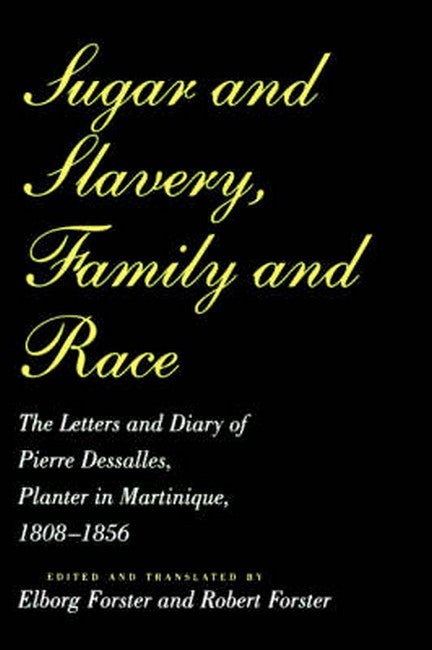Diaries of nineteenth-century plantation managers are rare; diaries of French sugar planters are rarer still. Although such works as the diaries of Ella Gertrude Thomas and James Henry Hammond provide insight into the plantation societies of the antebellum South, virtually no contemporary source treats planter-slave relations as extensively, or presents a white planter's views on slave society in as much detail, as do the letters and diary of Pierre Dessalles. Now Elborg Forster and Robert Forster have translated and edited the most historically and socially significant portions of this unusual work. Previously available only in a four-volume French edition, these materials treat a wide range of topics, including the slave economy, management and socialization of the labor force, the role of free blacks in society, the lives led by the plantation owners, and, significantly, black-white relations before, during, and after emancipation. ''This is a remarkable document, beautifully translated and well presented. I know of nothing else quite like it. The Dessalles diaries are both an account of the daily thoughts and actions of an important colonial planter over the course of an immensely rich and interesting period of societal transformation and a presentation of the life history of Dessalles himself. They contain an immense amount of information about the maintenance of the slave gangs, work routines, punishments and rewards, sugarmaking, relations between planters and merchants, race relations and the nature of the status order in the colonies, kinship, property, inheritance, and insight into the transatlantic character of planter society both in the colony and in France.''--Dale W. Tomich, Binghamton University

